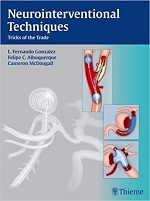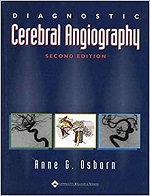Recognition of Focused Practice Designation: Central Nervous System Endovascular Surgery
The objective of the Recognition of Focused Practice Designation (RFPD) in CNS Endovascular Surgery is to elevate and advance patient care for the public benefit by credentialing neurosurgeons, radiologists, and neurologists who successfully completed a standardized CNS Endovascular training program and satisfied stringent practice criteria. This RFPD serves as a formal credential for diplomates of the American Board of Neurological Surgery (ABNS), the American Board of Radiology (ABR), and the American Board of Psychiatry and Neurology (ABPN). The CNS Endovascular RFPD is jointly sponsored by the ABNS, ABR, and ABPN, approved by the American Board of Medical Specialties (ABMS), and managed by the ABNS.
Pathways to Credential
There are two pathways to achieve this credential. The post-fellowship track is designed for physicians who have completed an ACGME or CAST accredited fellowship. The clinical practice track is intended for physicians who have dedicated a substantial portion of their professional practice to this specialty, irrespective of whether they have graduated from a fellowship. Both pathways include passing a written exam in which with the application must be submitted within three years of passing.
ABNS Certified Neurosurgeon
Post Fellowship Pathway Requirements
| 1. ABNS Board Certification |
| 2. Satisfactory completion of an ACGME neurosurgery residency including the ABNS requirement of 6 months of Neurointensive Care training. |
| 3. Completion of a CNS Endovascular Surgery accredited fellowship by ACGME or CAST |
| 4. Documentation of the first one hundred consecutive endovascular cases post fellowship including CPT codes |
5. Documentation of at least 250 interventional treatment procedures as primary operator over the most recent 24 months. Suggested minimums include:
|
| 6. A passing score on the CNS Endovascular RFP written examination |
| 7. Approved application |
Clinical Practice Pathway Requirements
| 1. ABNS Board Certification |
| 2. Completion of non-accredited fellowship training or equivalent clinical experience |
| 3. A minimum of 50% of clinical practice participating in the assessment, clinical management, and procedural care of patients with cerebrovascular disease |
| 4. Case log documenting one hundred endovascular cases including CPT codes from any time period |
5. Documentation of at least 250 interventional treatment procedures as primary operator over the most recent 24 months. Suggested minimums include:
|
| 6. Proof of licensing and credentials |
| 7. A passing score on the CNS Endovascular RFP written examination |
| 8. Approved application |
ABPN Certified Neurologist
Post Fellowship Pathway Requirements
| 1. ABPN certification in Neurology or Neurology with Special Qualifications in Child Neurology |
| 2. ABPN certification in Vascular Neurology or Neurocritical Care; or UCNS certification in Neurocritical Care. |
| 3. Satisfactory completion of a CNS Endovascular Surgery fellowship accredited by ACGME (Neuroendovascular Intervention), or CAST |
| 4. Documentation of the first one hundred consecutive endovascular cases post fellowship including CPT codes |
5. Documentation of at least 250 interventional treatment procedures as primary operator over the most recent 24 months. Suggested minimums include:
|
| 6. A passing score on the CNS Endovascular RFP written examination |
| 7. Approved application |
Clinical Practice Pathway Requirements
| 1. ABPN certification in Neurology or Neurology with Special Qualifications in Child Neurology |
| 2. ABPN certification in Vascular Neurology or Neurocritical Care accredited by ACGME. |
| 3. Proof of licensing and credentials |
| 4. A minimum of 50% of clinical practice participating in the assessment, clinical management, and procedural care of patients with cerebrovascular disease |
| 5. Case log documenting one hundred endovascular cases including CPT codes from any time period. |
6. Documentation of at least 250 interventional treatment procedures as primary operator over the most recent 24 months. Suggested minimums include:
|
| 7. A passing score on the CNS Endovascular RFP written examination |
| 8. Approved application |
ABR Certified Radiologist
Post Fellowship Pathway Requirements
1. ABR certification via one of three pathways
|
| 2. Satisfactory completion of a CNS Endovascular Surgery fellowship accredited by ACGME (Neuroendovascular Intervention), or CAST |
| 3. Documentation of the first one hundred consecutive endovascular cases post fellowship including CPT codes |
4. Documentation of at least 250 interventional treatment procedures as primary operator over the most recent 24 months. Suggested minimums include:
|
| 6. A passing score on the CNS Endovascular RFP written examination |
| 7. Approved application |
Clinical Practice Pathway Requirements
| 1. ABR certification with subspecialty certification in Neuroradiology or Interventional Radiology |
| 2. Proof of licensing and credentials |
| 3. A minimum of 50% of clinical practice participating in the assessment, clinical management, and procedural care of patients with cerebrovascular disease |
| 4. Case log documenting one hundred endovascular cases including CPT codes from any time period |
5. Documentation of at least 250 interventional treatment procedures as primary operator over the most recent 24 months. Suggested minimums include:
|
| 7. A passing score on the CNS Endovascular RFP written examination |
| 8. Approved application |
To complete and submit an application please login at http://applications.abns.org
For first-time visitors to this website, proceed with the steps in the upper right hand corner to register.
- Once registered follow the steps below to access the application:
1. Select “Applicant”
2. Click “Programs” in the top right black bar
3. Select “RFPD CNS Endo Application” Practice Application: CNS Endovascular”
4. Click “More”
5. Select green “Apply” button
Application Fee: $500
The RFPD exam is administered by the ABNS twice a year, June and December. It is a multiple-choice exam with a two-hour time limit and can be completed either remotely (online) or at a local testing center. Registration opens approximately one month prior to the exam date for all candidates that have initiated an application. An email with instructions on how to register will be sent to all applicants.
Candidates have three years to submit their application for the RFP after successfully passing the CNS Endovascular written examination.
Exam ScheduleExam Registration Fee: $2000
Exam Study Materials
| Neurointerventional Techniques By: Cameron McDougall and others | Decision Making in Neurovascular Disease By: Elad Levy, Adnan Siddiqui, and others | Diagnostic Cerebral Angiography By: Anne Osborn |
 |
 |
 |
It is the responsibility of the credential holder to inform the ABNS of any changes in contact information. Adding a delegate to your MyABNS account is a helpful option to ensure your Continuing Certification (CC) and personal information remain current. The following tasks are required annually to maintain your RFPD credential.
- Completion of the CNS Endovascular Adaptive Learning Tool.
- Completion of annual attestation of practice. The credential holder must perform a minimum of 65 CNS endovascular cases annually, of which 20 cases are for interventions.
- Maintain primary board certification and MOC/ CC through ABNS, ABPN or ABR.
RFPD holders will lose their credential if they fail to complete any Continuing Certification (CC) requirements for the RFPD more than once in any 10-year credentialing period. To reinstate the credential, the following steps must be initiated within two years of losing the credential:
- Inform the ABNS in writing of your intention to complete the reinstatement process.
- Submit a reinstatement fee of $2,500.
- Register for and pass the RFPD written examination.
- Provide a case log of 25 consecutive distinct patient cases with imaging and 3-month follow-up for peer review.
- Submit a letter to CESAC from your Chief of Staff or Chair attesting to a minimum of 17% focused practice in CNS endovascular and your professional standing.
- Ensure you are current in all CC /MOC requirements.
The Credentialing Endovascular Surgery Advisory Committee (CESAC) has equal membership of endovascular subspecialists approved by the ABNS, ABPN, and ABR. The term of service is 3 years, renewable one time for a total of 6 years. The CESAC chair is an ABNS Board Member.
Responsibilities of committee members include:
- Credentialing board-certified neurosurgeons, radiologists, and neurologists who have completed RFPD training requirements
- Determine educational and training criteria for CNS Endovascular RFPD credential
- Write the CNS Endovascular RFPD exam
- Award credential upon RFPD application approval
- Write the Adaptive Learning Tool needed to be done by RFPD holders to maintain their credential
- 6. Review questions submitted by credentialed RFPD holders for the written exam and Adaptive Learning Tool
CESAC Membership
| Name | Organization | Term End Date |
|---|---|---|
| Brian Hoh (Chair) | ABNS | May-26 |
| Adam Arthur | ABNS | May-26 |
| Clemens Schirmer | ABNS | May-27 |
| Stavropoula Tjoumakaris | ABNS | May-27 |
| Jeremy Heit | ABR | May-26 |
| Martin Radvany | ABR | May-26 |
| Matthew Amans | ABR | May-27 |
| Mahesh Jayaraman | ABR | May-27 |
| Gabor Toth | ABPN | May-28 |
| Edgar Samaniego | ABPN | May-28 |
| Sunil Sheth | ABPN | May-26 |
| Mouhammad Jumaa | ABPN | May-26 |
ACGME: Accreditation Council for Graduate Medical Education
UCNS: United Council for Neurologic Subspecialties
CAST: The Committee on Advanced Subspecialty Training
 Home Page
Home Page